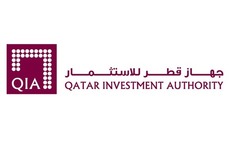
The churn factor
Mid-cap Asian GPs are no strangers to staff turnover, with volatility tracking the peaks and troughs of different regional markets. In times of plenty, when China and India were booming, it seemed that a week couldn't pass without a manager spinning out to set up his own shop.
Now the fundraising environment has become challenging, there is less incentive to launch first-time funds, but uncertainty breeds job applications from mid-level professionals wondering about their next career move. One China-focused manager recently told AVCJ that he is getting 5-10 resumes per day on spec; three years ago the same number would come for each position advertised.
It is also argued that churn is integral to the continued development of the asset class in Asia. A local investment professional who has learned his trade with a global firm will inevitably consider striking out as an independent. He gets more money and more autonomy, and the knowledge and practices he inculcates filter down through the local practitioners. It is akin to technology transfer.
But is high turnover good? The prevailing notion is absolutely not; a long-term asset class requires stability. LPs routinely say they favor private equity firms with a consistent investment approach and minimal churn - that is why they pay close attention to the distribution of carried interest, ensuring the wealth spreads far enough to keep the junior members interested.
At first glance, a recent study by Capital Dynamics and the London Business School threatens to turn this notion on its head. Analyzing management teams and fund performance over a 20-year period, the researchers found that a 1% increase in turnover from one fundraising to the next led to a 10% improvement in the subsequent vehicle's net IRR. The average net IRR of managers with the highest turnover was 25% compared with 11.5% for those with the lowest turnover.
So much for headline findings. Digging deeper into the data, the researchers established that: a higher turnover of professionals with operational backgrounds produced a significant improvement in performance; the impact of changes in financial teams was negligible; and a high turnover of professionals with a PE background was detrimental to performance.
There is logic at work here. Change within an operating team may reflect the nature of the assets in a private equity firm's portfolio and deal pipeline - if you are looking to do more telecom deals you hire more people with experience in this field to diligence and develop the assets, hopefully leading to stronger returns. But lose the core private equity professionals, in some cases also the company founders, who define and execute investment strategy, and you risk losing continuity and discipline.
The overriding message is one of evolution, not revolution. While team stability is important, so is an awareness of changes in the macroeconomic and investment environment in which a firm operates. GPs that fail to spot the trends, and manage their resources accordingly, will find themselves less able to address new opportunity sets.
This is already apparent in an Asian private equity industry still recovering from a post-IPO hangover. A generation of funds - in China particularly - was raised largely on the premise of the attractive valuations presented by public market exits; the markets have since weakened, and even though most investors expect them rebound a some point, it is unclear whether previous highs can be repeated.
The response has been to emphasize value creation and bulk up operating teams accordingly. Many GPs in the region are keen to stress that recruitment activity has focused on this area, enhancing their ability to build better portfolio companies through newfound efficiencies and old school hard graft.
Evolution indeed, but it remains to be seen whether these staffing changes - not so much churn as rebalancing, with expanded teams and higher costs - translate into better performance. One caveat is that numbers, though useful, do not suffice in isolation. There are numerous approaches to operational value-add, some asset light and other asset heavy, and success depends on finding the best fit for a GP's strategy.
This applies on a broader level, too. Staff turnover might be evidence of a variety of phenomena, which is why it should remain just one of the criteria used to assess a manager.
Latest News
Asian GPs slow implementation of ESG policies - survey
Asia-based private equity firms are assigning more dedicated resources to environment, social, and governance (ESG) programmes, but policy changes have slowed in the past 12 months, in part due to concerns raised internally and by LPs, according to a...
Singapore fintech start-up LXA gets $10m seed round
New Enterprise Associates (NEA) has led a USD 10m seed round for Singapore’s LXA, a financial technology start-up launched by a former Asia senior executive at The Blackstone Group.
India's InCred announces $60m round, claims unicorn status
Indian non-bank lender InCred Financial Services said it has received INR 5bn (USD 60m) at a valuation of at least USD 1bn from unnamed investors including “a global private equity fund.”
Insight leads $50m round for Australia's Roller
Insight Partners has led a USD 50m round for Australia’s Roller, a venue management software provider specializing in family fun parks.







